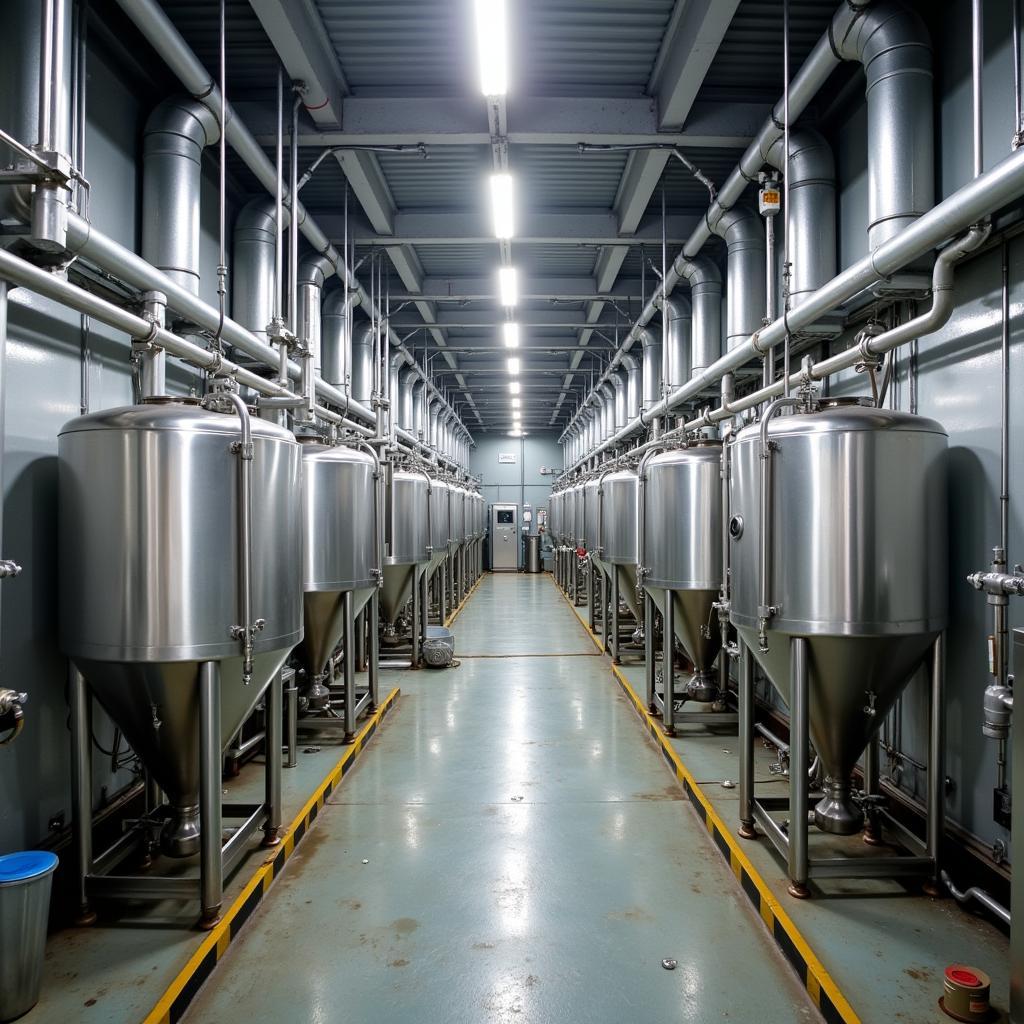The Dairy Industry In Pakistan, a significant contributor to the nation’s agricultural landscape, faces a unique set of challenges and opportunities for growth. With a rich history of milk production and consumption deeply rooted in its culture, Pakistan’s dairy sector plays a vital role in the country’s economy and food security.
Production and Consumption: A Deep Dive
Pakistan boasts a large population of dairy animals, including cows, buffaloes, goats, and sheep. This vast resource positions the country as one of the world’s top milk producers. The majority of milk production stems from small-scale farmers, often relying on traditional methods.
Demand for dairy products, particularly milk, yogurt, and butter, remains consistently high within the country. This strong domestic demand is driven by a combination of cultural preferences, population growth, and increasing urbanization.
Challenges Facing the Industry
Despite its potential, the Pakistani dairy sector grapples with several challenges:
- Low Yield: Traditional farming practices, limited access to improved breeds, and inadequate animal healthcare contribute to low milk yields per animal.
- Quality Control: Maintaining consistent milk quality from farm to consumer presents a challenge. This is further compounded by the lack of proper cold chain infrastructure in many areas.
- Value Chain Inefficiencies: The supply chain often involves multiple intermediaries, leading to increased costs and post-harvest losses. This fragmented structure limits the profitability for both farmers and processors.
- Limited Access to Finance: Smallholder farmers often struggle to access formal credit, hindering their ability to invest in improved technologies, breeding stock, and infrastructure upgrades.
Opportunities for Growth and Development
The challenges facing the dairy sector also present significant opportunities for growth and development:
- Improving Genetic Potential: Investing in improved breeds and implementing effective breeding programs can significantly enhance milk yields and overall productivity.
- Strengthening the Cold Chain: Developing a robust cold chain infrastructure is crucial for preserving milk quality, reducing spoilage, and ensuring safe and hygienic products reach consumers.
- Promoting Value Addition: Exploring value-added dairy products like cheese, flavored milk, and yogurt drinks can expand market reach and increase profitability.
- Empowering Farmers: Providing farmers with access to training, technology, and financial services can enhance their technical skills, improve animal health, and boost productivity.
The Role of Technology and Innovation
Technological advancements offer promising solutions to address challenges within the Pakistani dairy industry:
- Precision Dairy Farming: Implementing sensors, data analytics, and automation can optimize feeding, health monitoring, and milk production processes.
- Mobile Technology: Mobile apps can connect farmers to veterinarians, provide access to market information, and facilitate financial transactions, improving efficiency and transparency.
 Modern Milk Processing in Pakistan
Modern Milk Processing in Pakistan
Government Initiatives and Policies
The Pakistani government recognizes the importance of the dairy sector and has implemented policies to support its growth, including:
- Livestock Development Programs: These programs focus on improving animal health, breeding practices, and providing technical assistance to farmers.
- Investment Incentives: The government offers tax breaks and subsidies to encourage private sector investment in milk processing and cold chain infrastructure.
The Future of Pakistan’s Dairy Industry
The dairy industry in Pakistan stands at a critical juncture. By addressing the existing challenges and capitalizing on the available opportunities, the sector has the potential to become a major driver of economic growth, rural development, and improved livelihoods for millions of Pakistanis. With a focus on sustainability, technology adoption, and empowering smallholder farmers, the future of Pakistan’s dairy industry looks promising.
FAQs
Q: What is the average milk yield per cow in Pakistan?
A: The average milk yield per cow in Pakistan is lower than the global average, ranging between 5-7 liters per day.
Q: What are the major dairy products consumed in Pakistan?
A: Milk, yogurt (lassi), butter, and ghee are among the most popular dairy products consumed in Pakistan.
Q: How can I invest in the Pakistani dairy industry?
A: Investment opportunities exist in milk processing, cold chain infrastructure, dairy farming technology, and value-added dairy product manufacturing.
Get in Touch
For any assistance or inquiries related to the dairy industry in Pakistan, please contact us:
Phone: +923337849799
Email: news.pakit@gmail.com
Address: Dera Ghazi Khan Rd, Rakhni, Barkhan, Balochistan, Pakistan
Our customer service team is available 24/7 to assist you.